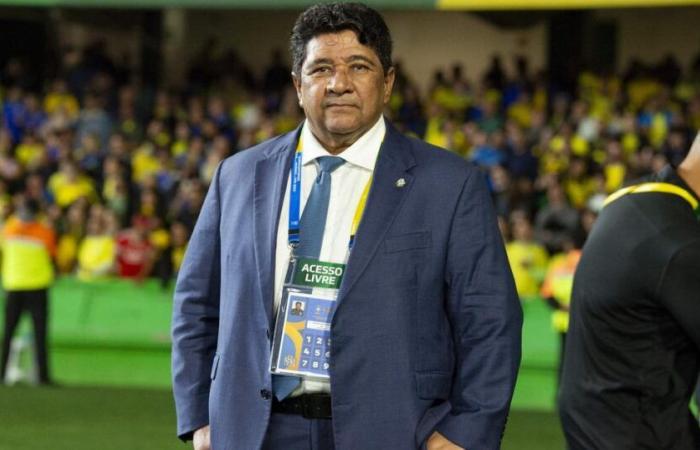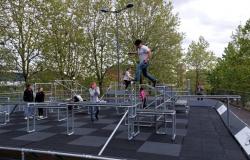Next November, 48 indigenous ethnic groups from Brazil will compete in a unique tournament.
More than 2,400 members of 48 indigenous ethnic groups in Brazil will participate from November in the first Indigenous Peoples’ Cup, a long-term tournament whose draw took place on Thursday in Rio de Janeiro.
“It’s more than just a sporting competition. This represents the fight for a future made of more dignity, respect and inclusion”declared Ednaldo Rodrigues, president of the Brazilian Football Confederation (CBF), institutional support of the project.
“I carry this ancestry in my blood with pride”added Mr. Rodrigues, who has both Afro-Brazilian and indigenous origins. He wore a feather headdress at the end of the ceremony, at the headquarters of the confederation. Coach Dorival Junior was also present.
The tournament was divided into four stages, one for each of the major regions of Brazil. The first, with 24 teams from the central west, 12 men’s and 12 women’s, will take place from November 26 to 30. The other stages will take place during 2025. All the meetings will take place in a single location, a “multi-ethnic village” located in the heart of the Chapada dos Veadeiros National Park, near Brasilia.
Only football has the power to unite everyone. In every indigenous village I visited, there was a soccer field.
Libia Miranda, director of the company FourX Entertainment, which organizes the tournament.
“This is a great opportunity, not only for us, but also for our children in the future”Takuru Kaiapo, 30, told AFP. “I have often played with non-natives, they sometimes call me to play local tournaments. But I was never able to take a test in a professional club because my mother didn’t want me to leave the village.says this member of the Kaiapo people, who lives in a village in the Amazonian state of Mato Grosso.
“We see a lot of good indigenous players who don’t get enough opportunities. It’s complicated for them to go and play far from home because they don’t have financial aid.”deplores Tainara Castelao Ricardo, from the Guarani-Kaiowa ethnic group. This 29-year-old player, who has already played in a professional futsal team, is now the head of an association aimed at promoting the sport in her village of Te’yíkue, in the state of Mato Grosso do Sul. .
“Brazil is a huge country, with so many different ethnicities, languages and indigenous cultures. Only football has the power to unite everyone. In every indigenous village I visited, there was a soccer field.explains Libia Miranda, director of the company FourX Entertainment, which organizes the tournament.
Latin America’s largest country is home to nearly 1.7 million indigenous people of around 300 ethnicities, speaking more than 200 different languages.






